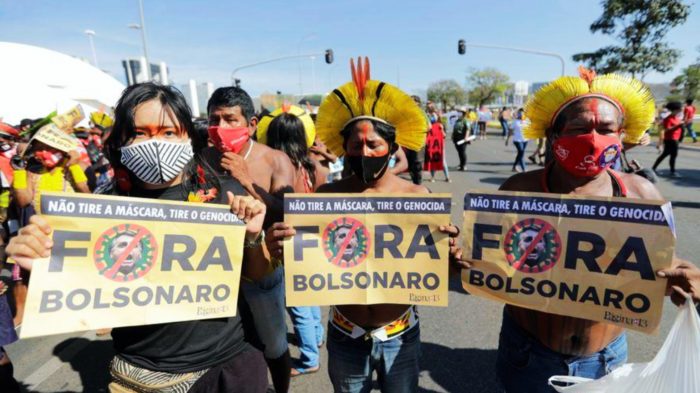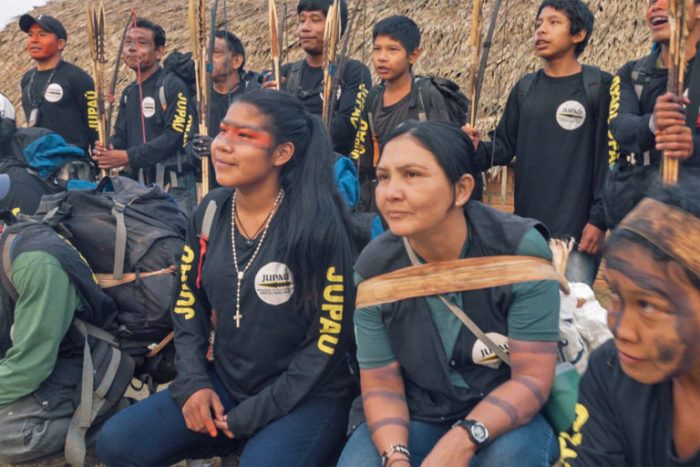
Community Opposition to Violence
*Correction, we mistakenly put May 16 instead of June 16 on our previous NL, apologies.
A huge thanks to all those who have signed up to support our work on LAB’s Patreon subscription service so far and to those donating. As most of you know, LAB is desperately in need of funding to keep our work going so your kind support is much appreciated.
Natalia Aravena, a Chilean nurse who lost an eye to a Carabinero’s tear gas grenade in the estallido social and stood as a candidate for the Constituent Assembly, is the author of the very first edition of LAB’s Quarterly Dispatch, Voz, which LAB Patrons (i.e. those who have signed up to Patreon) will receive this month.
In August, our Patrons will be given access to the first of our Voices webinar recordings, kindly edited by producer and LAB volunteer Eliana Lafone.
Do sign up to Patreon now, to ensure that you receive these materials. If you are unable to sign up to Patreon, but would still like to gain access to the Webinar recordings, please get in touch.
News from the region
Peru
Readers will know that the run-off presidential elections in Peru on 6 June ended in victory for Pedro Castillo, who defeated the candidate of the right, Keiko Fujimori, by the narrow margin of 44,000 votes. The always excellent Peru Support Group newsletter explains the various Trumplike attempts by Fujimori to challenge the results, including an abortive mission to Washington to seek backing from the OAS.
Mining continues to play a huge and generally sinister part in Peru’s economy. Jasmine Haniff reviews Peruvian filmmaker Claudia Sparrow’s first documentary, MAXIMA. The film, ‘a provocative and beautifully crafted story of resilience’, explores the life and struggles of Máxima Acuña, indigenous Peruvian farmer and activist, to protect her land, water and dignity from the US-based Newmont Mining Corporation. Jasmine is working with LAB on a series of articles about the impact of mining on bodies of water and their surrounding communities.
Colombia
Colombia is in crisis, with Coronavirus putting many in precarity, the peace accords endangered and ongoing protests against corruption being met with extreme violence, Matt Dunnett reviews Desolvido, a short film soundtracked by Edson Velandia and Adriana Lizcano. The lyrics express solidarity with the current strike and the images portray the violent displacement and brutalisation of a rural family at the hands of armed groups.
Women Resisting Violence
The conflict in Colombia has particularly affected women, and has motivated a number of organisations to advocate for them. Among these is the pacifist feminist group La Ruta Pacífica de las Mujeres. Isabelle Gribomont of University of Liverpool analyses the importance of language in determining how women victims are understood and treated. She compares the language used by broadsheet El Tiempo and La Ruta Pacífica, noting the ‘differences between the victims’ own voices and their representation in the discourse which generally shapes public opinion’.
Chile
The 2020 vote which overwhelmingly supported rewriting the constitution, along with the recent May elections to select mayors, councillors, and two new forms of representation – regional governors and delegates for a new constitutional convention– highlight Chilean society’s continued resistance to neoliberalism. Ivette Hernández Santibañez and Margarita Rebolledo Hernández write on Chile’s constituent process, which is led by the consistent work of the country’s social movements and seeks to dismantle the first laboratory of neoliberal capitalism. Ivette and Margarita suggest that the constituent process offers lessons to the left in the UK and worldwide. LAB patrons will soon receive the stunning testimony of Natalia Aravena, who was a candidate in the elections, in the first edition of Voz, LAB’s Quarterly Dispatch.
Cuba
Alan Cunningham, a student at Norwich University, Vermont, highlights the lack of evidence to prove that Cuba is actively supporting international terrorism or drug trafficking, and suggests there is no legitimate reason for the US to keep Cuba on the State Sponsors of Terrorism list. Only political bias can explain this decision. He urges the Biden administration to reverse Trump’s Cuba policies and restore a more productive, mutually beneficial relationship, of the kind introduced in the Obama era. Meanwhile, however, the island has been shaken by the first large demonstrations for many years, protesting at shortages in the shops, bleak prospects, especially for the young and government clamp-downs.
Ecuador
Kinga Harasim reports on Josefina Tunki, the first female leader of the Shuar Arutam People (PSHA), known in her community as ‘brave woman’. Currently, 56 percent of the Shuar’s territory is licensed for large-scale mining, but the PSHA claims that they were not consulted.
Josefina Tunki says: ‘Mining companies make us believe that they comply with the laws (…) it’s all false. They threaten us (…) like other peoples of struggle, we will not withdraw, not one step back from our territory! By defending the Amazon rainforest, we also defend the lives of all of us’.
Brazil
Bolsonaro’s response to the pandemic and corruption have caused outrage, increasing demands for his impeachment. Alvaro Penteado Crósta states that scientists calculate the deaths of nearly 400,000 Brazilians could have been avoided, had the government acted in time.
Instead of prioritising a vaccine programme, Bolsonaro has chosen to promote the ‘anti-Covid cocktail’, including drugs that are ineffective against Covid. What’s more Jan Rocha reports that behind the Ministry of Health’s official vaccine negotiations with pharmaceutical companies lies a dark underworld of deals prioritising profit over lives, negotiated in expensive Brasília restaurants by businessmen, politicians, preachers and army colonels.

Bolsonaro’s dismantling of the rural health care infrastructure has been particularly worrying for the indigenous Uru-eu-wau-wau during the pandemic. This group closed off their territory in Rondônia state in March 2020. In a video shot by Indigenous cinematographers, the Uru-eu-wau-wau share how they have survived the pandemic for over a year and resisted invasions by illegal miners, loggers and land grabbers. The invasions have been actively encouraged by the anti-indigenous and anti-conservation rhetoric of Bolsonaro.
In June, as Constance Malleret describes, around 850 Indigenous Brazilians from 43 ethnic groups staged protests in Brasilia in opposition to the Bolsonaro administration’s anti-indigenous rhetoric and to protest against the PL-490 bill which would weaken indigenous land rights. Following violence at one of the demonstrations, Indigenous leader Alessandra Korap Munduruku says: ‘We are here to say: stop. Cancel this PL 490’.
Few people know that the world’s largest expatriate Japanese population lives in Brazil. Malcolm Boorer investigates Brazil’s Empire Windrush, the Kasato Maru ship which launched Japanese migration to Brazil in 1908 in an attempt by São Paulo State to whiten Brazil’s population and end the labour shortage, and the subsequent history of the Nikkei, Japanese-Brazilians.
Indigenous Brazil Violated
Cardiff University’s Antonio Ioris, principal investigator of the Indigenous Brazil Violated project, presented a paper at the World Conference on Genocide Studies – II, in Ankara, Turkey, June 26-27 2021. Antonio’s paper suggests that the indigenous genocide unfolding in the Brazilian State of Mato Grosso do Sul – Kaiowcide – is qualitatively different from other serious crimes committed against marginalised, subaltern communities.

Events
Photographer Claudia Andujar has spent many years building a strong affinity with the Yanomami Indigenous people and helped to found the Commission for the Creation of the Yanomami Park (CCPY). Sue Branford reviews an exhibition of Claudia’s years of work and life with the Yanomami at London’s Barbican Centre until August 29.
LAB services
Our partner Practical Action Publishing has now made over 120 LAB books available as ebooks. If your organisation or university is interested in a subscription to LAB’s elibrary, head to Practical Action Publishing’s website for more information on our e-library offering or get in touch with us.
As always, for enquiries about our Research, Engagement and Impact services visit our website or get in touch at rei@lab.org.uk.
For access to additional content, follow LAB’s YouTube channel which we refresh regularly with relevant videos, and our Instagram, Facebook and Twitter for news updates, interesting events and multimedia links.
Don’t forget you can support us through our Patreon scheme, which allows us to keep this newsletter free for all.
- For just £3.50 a month you will receive, in addition to the newsletter, two free LAB e-books per year.
- For £8.50 per month you will become a Friend of LAB and receive a LAB paperback per year plus a personal acknowledgement printed in every new LAB book.
- Both types of paid subscriber will receive LAB’s Voz Quarterly Dispatch, each with a long-read article by a special correspondent.
To access all of this please consider becoming a LAB Patreon subscriber.

